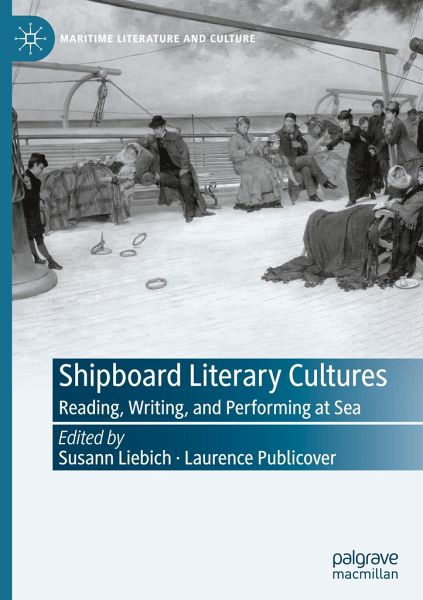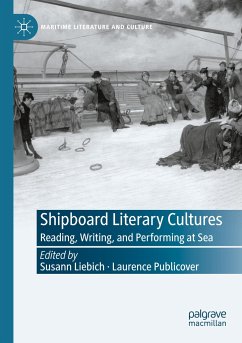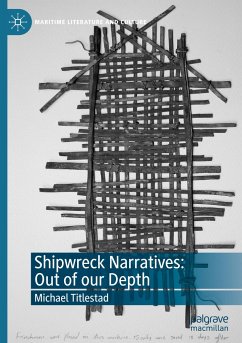
Shipboard Literary Cultures
Reading, Writing, and Performing at Sea
Herausgegeben: Liebich, Susann; Publicover, Laurence

PAYBACK Punkte
42 °P sammeln!
The essays collected within this volume ask how literary practices are shaped by the experience of being at sea-and also how they forge that experience. Individual chapters explore the literary worlds of naval ships, whalers, commercial vessels, emigrant ships, and troop transports from the seventeenth to the twentieth-first century, revealing a rich history of shipboard reading, writing, and performing. Contributors are interested both in how literary activities adapt to the maritime world, and in how individual and collective shipboard experiences are structured through-and framed by-such ac...
The essays collected within this volume ask how literary practices are shaped by the experience of being at sea-and also how they forge that experience. Individual chapters explore the literary worlds of naval ships, whalers, commercial vessels, emigrant ships, and troop transports from the seventeenth to the twentieth-first century, revealing a rich history of shipboard reading, writing, and performing. Contributors are interested both in how literary activities adapt to the maritime world, and in how individual and collective shipboard experiences are structured through-and framed by-such activities. In this respect, the volume builds on scholarship that has explored reading as a spatially situated and embodied practice. As our contributors demonstrate, the shipboard environment and the ocean beyond it place the mind and body under peculiar forms of pressure, and these determine acts of reading-and of writing and performing-in specific ways.














